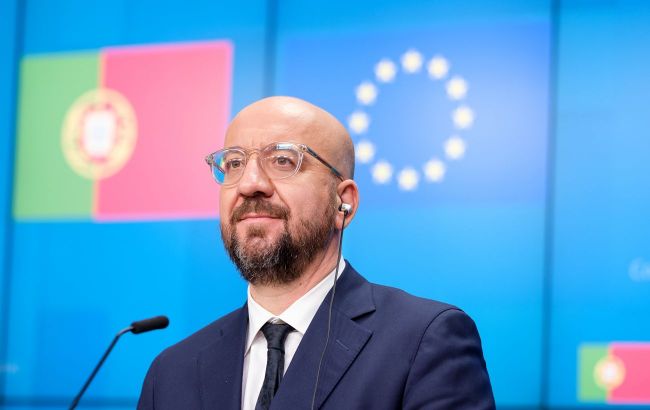Charles Michel wants to remove Ursula von der Leyen from top EU posts talks
 Charles Michel (Getty Images)
Charles Michel (Getty Images)
European Council President Charles Michel has proposed excluding European Commission President Ursula von der Leyen from the June 17 meeting where heads of state and government will discuss top EU posts, citing Politico.
Leaders need to agree on the next presidents of the European Commission, the European Council (Michel's current position), and the European Parliament (although the Parliament elects its own leadership), as well as the next High Representative for Foreign Affairs.
Von der Leyen is the leading candidate from the European People's Party and is vying for a second term as head of the European Commission.
The ongoing clash and longstanding rivalry between Michel and von der Leyen play a crucial role.
Michel must decide who can join the dinner with leaders since the June 17 meeting is an informal summit.
Several European capitals believe that Michel is trying to thwart the potential second term of the Commission's head.
"Member states are increasingly irritated about Charles Michel’s role in the selection process for the Commission President," said one EU diplomat. "It seems to be driven by purely personal motives."
Some suspect Michel is devising a scheme to enter the race for higher positions as the next High Representative for Foreign Affairs.
"There's some irritation," another diplomat said about Michel's maneuvers. This irritation is observed both within von der Leyen's office and among leaders, the second diplomat noted.
The current dilemma is unprecedented. Since the adoption of the Spitzenkandidat system in 2014, no sitting European Commission President has sought a second term.
At the beginning of June, the EU held European Parliament elections, which must approve the head of the European Commission. The Parliament can vote only after a majority of EU heads of state and government officially nominate a candidate. This process is expected to conclude at the European Council meeting on June 27-28, where the top positions will likely be distributed among the dominant political forces in the EU.

